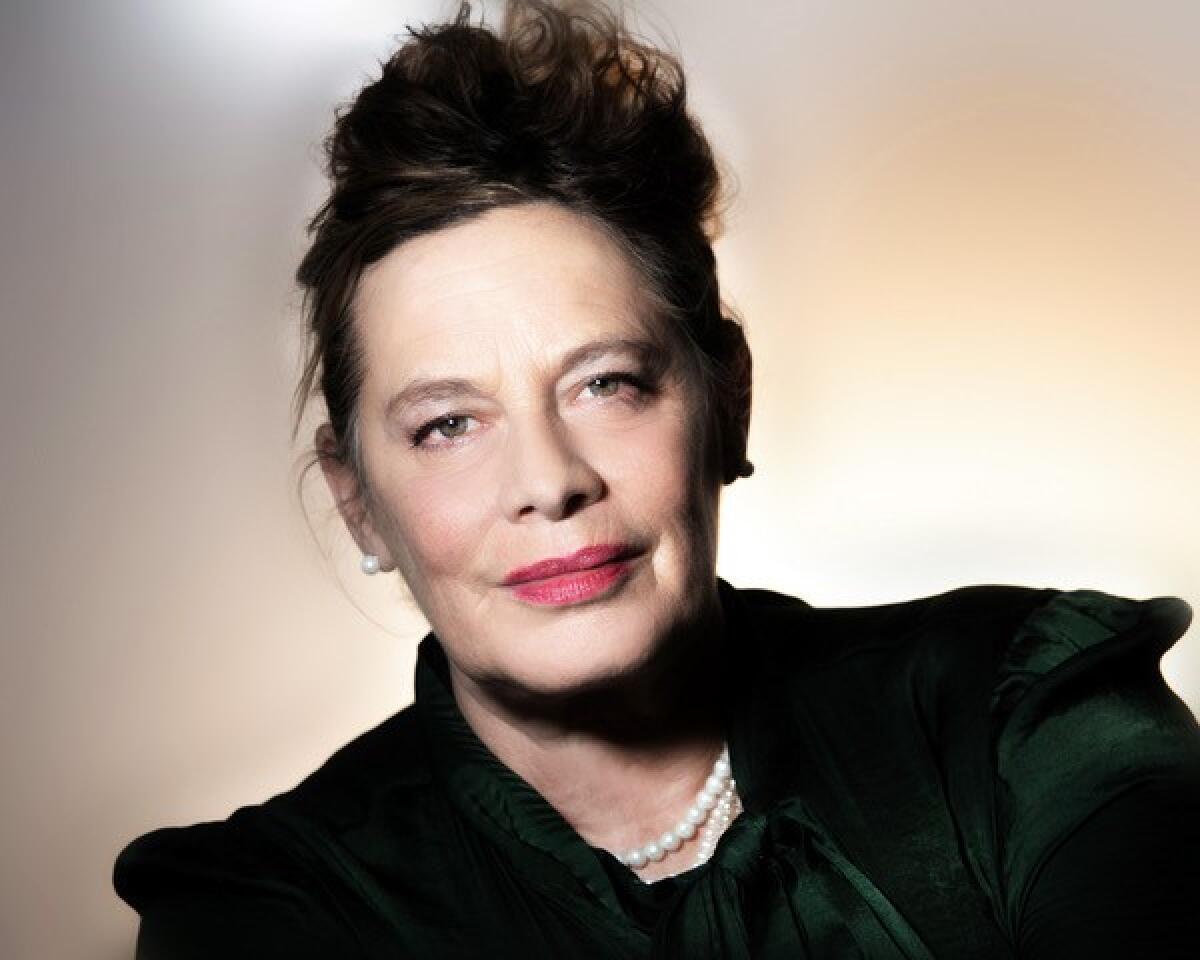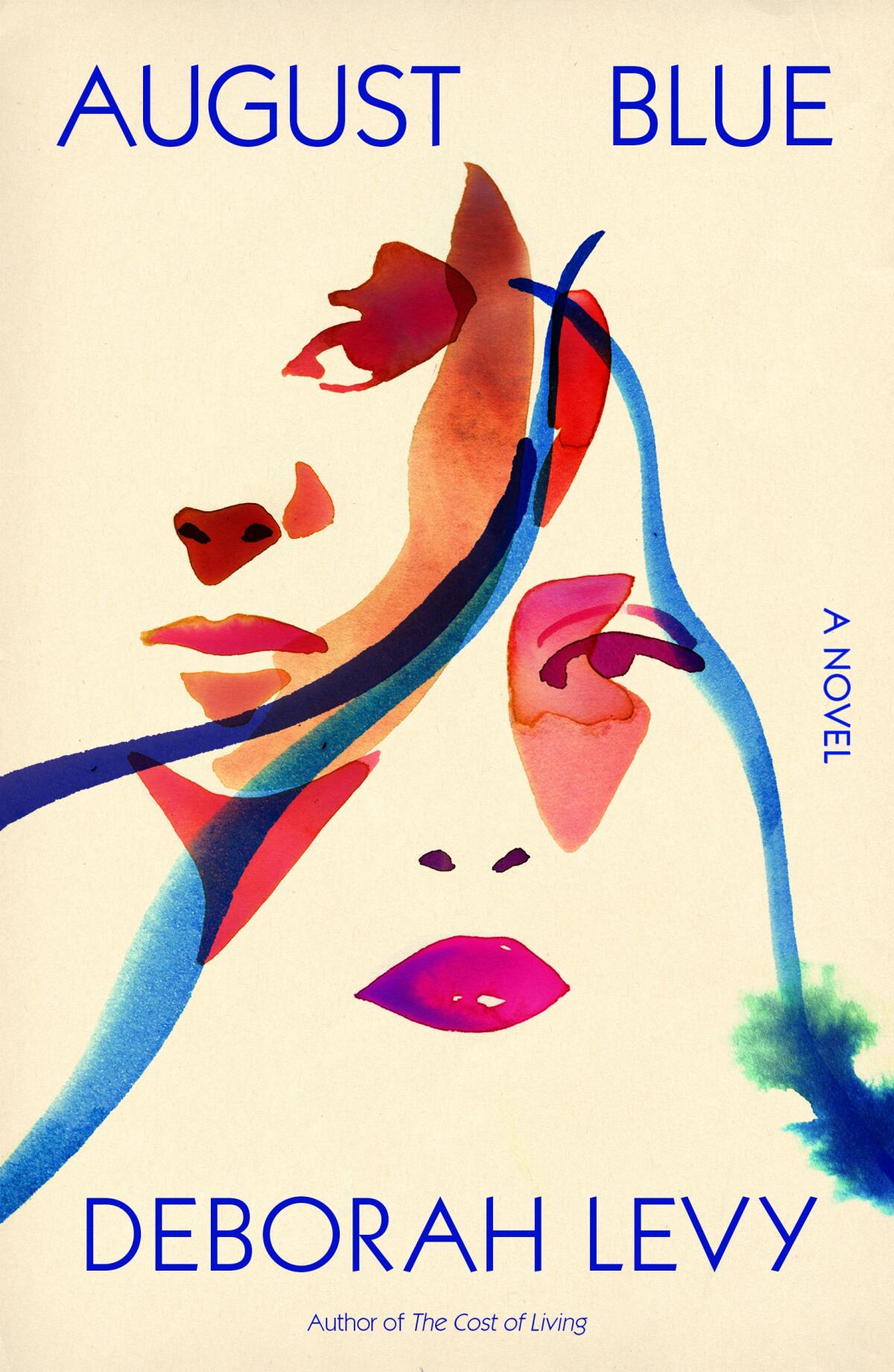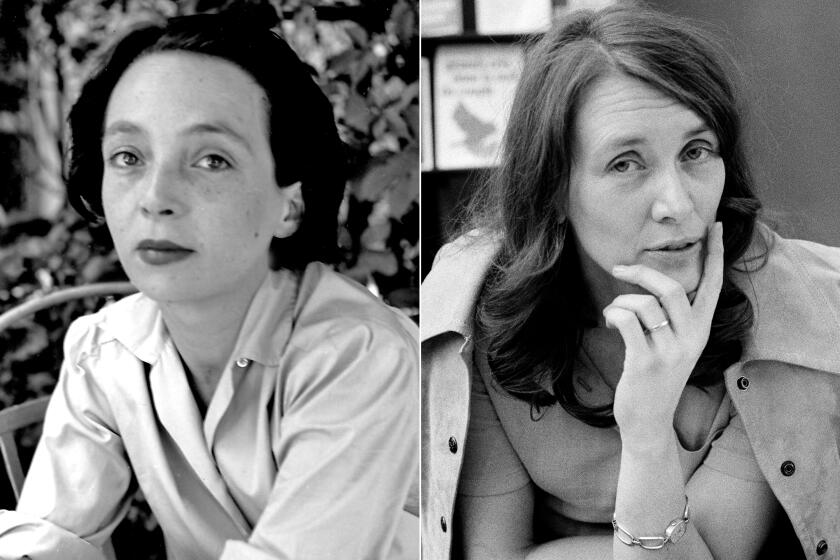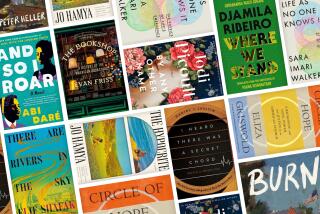How Deborah Levy’s self-soothing COVID-lockdown habit inspired a virtuosic novel

On the Shelf
'August Blue'
By Deborah Levy
FSG: 208 pages, $27
If you buy books linked on our site, The Times may earn a commission from Bookshop.org, whose fees support independent bookstores.
For the writer Deborah Levy, the piercing wail of ambulance sirens was a pervasive soundtrack of the early pandemic, an unfortunate consequence of living between two hospitals in London. Levy turned to classical music as a counterbalance to all the news she was consuming. The author sought sustenance in the language of music instead of words. And she found inspiration for the arc of her next novel, “August Blue,” out this week, a story that took her outside the confines of her flat and across the expanse of Europe and its music.
“During those various waves of the virus, it was as if I was looking for a narrative for the end of the world,” she shared recently over Zoom. Speaking with or reading Levy, a two-time Booker Prize finalist equally renowned for memoirs and novels, inevitably leads to references to art forms not just consumed but internalized. It’s not surprising when she references J.G. Ballard, who would make himself a small whiskey and soda at 9 in the morning to “change the climate inside of him.” “I loved that turn of phrase,” she said, “and I felt that the music I was listening to changed the climate inside me.”
I’m not a lover of writing craft books.
This is how her new novel, which revolves around a blocked piano virtuoso, came to be set during the “end days” of the pandemic. The low wages of the nurses and shopkeepers and other employees who contributed to the infrastructure of the country were much on Levy’s mind — as well as the fact that it took COVID-19 to make people realize how crucial they were. The “patronizing language” she heard enraged Levy. “I sort of thought, ‘Well, the whole world needs a new composition.’” But coming up with a new language isn’t easy, as 34-year-old Elsa M. Anderson quickly realizes in “August Blue.”
Elsa screws up while playing Rachmaninoff’s Piano Concerto No. 2, leading her to walk off the stage in Vienna. The former child prodigy has played it many times before, but she has a composition inside of her that is stalled by her teacher and father figure, Arthur Goldstein, who adopted her from foster parents when she was 6. Elsa’s inability to express herself is compounded by performing the work of others — by letting the world drown her out.
“It is so abject to express this loneliness within me,” Elsa thinks. “I am not sure I can take the freedom to find a language in music to reveal it. I have, after all, learned to conceal it. The old masters are my shield. Beethoven. Bach. Rachmaninov. Schumann. Their inner lives are valuable without measure.”
Elsa seeks answers from external sources, such as the innovative dancer Isadora Duncan: “Above all else, she believed in what she called freedom of expression: ‘I will show you just how beautiful the human dancing body can be when it is inspired by thoughts.’ Presumably she meant the thoughts that moved her upwards and outwards.”
‘Biography of X,’ Catherine Lacey’s fourth novel, tracks the hidden life of a late artist who left behind a trail of deceptions in an alternate-history U.S.
Three weeks after Elsa’s failed concert, she spots her double for the first time while traveling to Greece to teach a student. The woman purchases “mechanical dancing horses,” which Elsa immediately wants to claim as her own.
“Everything that I was had started to unravel,” Elsa narrates later on. “I was living precariously in my own body; that is to say, I had not fallen into who I was, or who I was becoming. What I wanted for myself was a new composition. I had let the woman who bought the horses enter me, too.”

The idea of a twinned self is threaded throughout “Real Estate,” the third and final volume of Levy’s “Living Autobiography” series. The author researched doppelgängers as a fellow at the Columbia Institute for Ideas and Imagination in Paris, one of the cities on Elsa’s global itinerary. Levy noticed very few examples in literature of female doubles, instead seeing a lot of male doubles who were either bent on destruction or possibly hallucinated. Levy, who imparts her intimately realistic world with uncanny touches that never ring false (“You can’t subvert a reality unless you set up a reality,” she says), wanted Elsa to accept the woman she encounters as real, even if she is slightly perturbed by the idea.
Elsa’s double acts as a muse, moving her out of the confinement of her own body and helping her find a new language to express herself. “There were weeks when I played fragments of my score through the night, which is when I felt most in communion with the woman who had bought the horses,” she writes. “I projected myself into her and she became music.”
Han Kang broke through to English speakers with her acclaimed bestseller ‘The Vegetarian.’ ‘Greek Lessons’ is quieter, but in its own way more profound.
The real inspirations for Levy’s work, whether fiction or memoir, seem always close at hand. In the background of her Zoom, I spy the antique, hand-painted wooden horses she describes in “Real Estate,” where she writes, “To be antique suggests something old and dead, maybe even ghostly, but I was pulled towards these horses because they were so expressly alive.” In “August Blue,” horses are even more resonant; they act on Elsa much like Proust’s madeleine.
If there is a throughline in Levy’s work, it is the resonance of objects. “Marguerite Duras has said something that I think applies to my writing as well,” Levy says. “Which is that the image is not a setting — it has to hold everything the novel is about. So that’s how I work with the image. I don’t work with symbols. No ideas but in things. They are physical objects.”
Levy is hardly surprised when readers tell her they find the voice in her novel familiar from her nonfiction. “I say, ‘Yeah, well it’s the same mind!’” But she describes her fictional characters as avatars to speak through. Ever since her highly acclaimed 2016 novel “Hot Milk,” Levy has written exclusively in the first person.
The English-language debut of the late French author’s second novel reinforces her revival — and her influence on women writing with brutal frankness.
“I don’t really want a narrator who knows so much more than the reader,” Levy explains. Often her characters (whether avatars or Levy herself) are peripatetic, restless in both the physical world and their own thoughts. Levy brings up a Joan Didion quote that’s in her reading copy of “August Blue”: “I have already lost touch with a couple of people I used to be.” That line stuck with her as she worked on the novel. “This is a book not about finding an identity, but losing an identity. The unraveling of an identity.”
It’s a striking idea: that freedom is to be found not by pursuing the self but by shedding it. But isn’t that what we did as we shed the isolation of pandemic shutdowns and exchanged stillness for movement? There are many ways to tell that story, but Elsa’s journey is a nuanced and psychologically thrilling composition.
Filgate is a writer and the editor of the anthology “What My Mother and I Don’t Talk About.”
More to Read
Sign up for our Book Club newsletter
Get the latest news, events and more from the Los Angeles Times Book Club, and help us get L.A. reading and talking.
You may occasionally receive promotional content from the Los Angeles Times.










